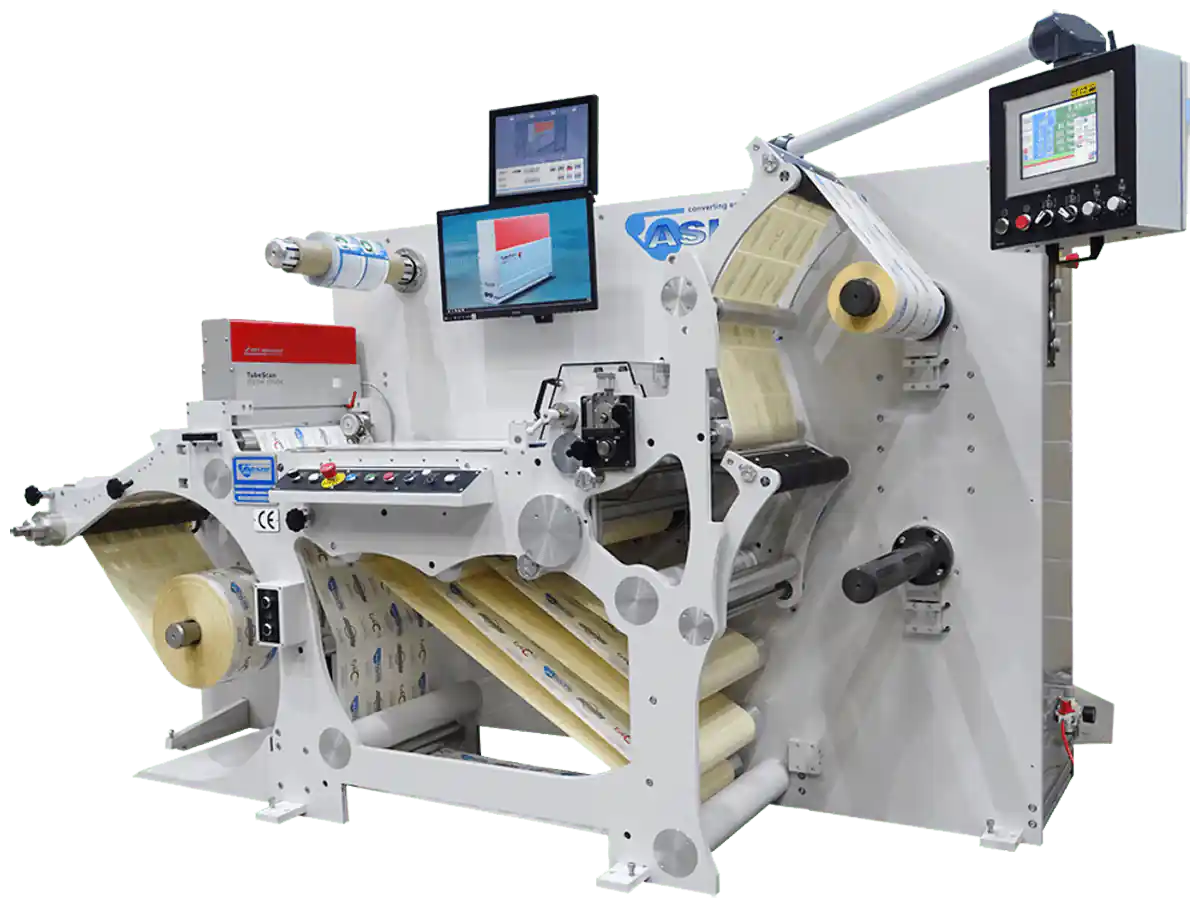Slitting machines play a crucial role in a wide range of industries, including manufacturing, textiles, and medicine.
Slitting machines enable the precise and efficient conversion of large rolls of materials into smaller, more manageable sizes. Whether it’s paper, plastic films, textiles, or metal sheets, slitting machines provide the means to obtain the desired widths and lengths necessary for various applications.
Understanding how slitter rewinders work and the key components involved is essential for maximising productivity and achieving consistent results. In this article, we will explore the inner workings of slitting machines, exploring their basic components, working mechanisms, different types, and factors to consider when selecting the right machine for specific requirements.
What is a slitting machine?
A slitting machine, also known as a slitter or slitting line, is a specialised piece of equipment used in various industries to cut large rolls of material into narrower widths. It is a vital tool in manufacturing processes where materials such as paper, plastic films, textiles, metal sheets, and other flexible materials need to be transformed into smaller rolls or strips.
The primary purpose of a slitting machine is to divide a wide parent roll or web into multiple narrower rolls, often referred to as slit rolls or slit coils. This process allows manufacturers to customise the width and length of the material to meet specific requirements for downstream operations or customer orders. Slitting machines are widely used in industries such as packaging, printing, converting, textiles, metalworking, and more.
How do slitting machines work?
At its core, a slitting machine consists of three main components: the unwinder, the slitting section, and the rewinder.
The unwinder holds the parent roll and feeds the material into the slitting section, where the actual cutting takes place.
The slitting section comprises various cutting mechanisms, such as blades, which can be adjusted and positioned to achieve the desired slit widths.
The rewinder collects the slit rolls or strips and rewinds them onto individual cores or spools.
The slitting process involves precise control of tension, speed, and alignment to ensure accurate and consistent results. Different types of slitting methods, including razor slitting, shear slitting, and crush slitting, are employed depending on the characteristics of the material being processed.
Additionally, edge trim removal systems may be incorporated to eliminate excess material during the slitting process, ensuring clean and uniform edges on the slit rolls.
Different types of slitter rewinders
It’s important to know how different types of slitter rewinders function and what applications they’re suitable for. There are many different types of slitter rewinders on the market, so we’ll just look at some of the most important ones here.
Duplex slitting machines
Duplex slitter rewinders feature two rewind shafts, allowing simultaneous winding of two or more separate rolls. These machines are widely used in various industries, including flexible packaging, printing, and converting.
Turret slitting machines
Turret slitter rewinders are renowned for their high-speed operation and quick roll changeover capabilities. They incorporate a rotating turret with multiple rewind shafts, enabling the simultaneous winding of multiple rolls. Turret slitter rewinders allow for rapid roll, resulting in minimal downtime and increased output. These machines are particularly suited for high-volume production environments where fast job changeovers and high-speed processing are critical.
Label slitting machines
Label slitter rewinders are specialised machines designed specifically for the efficient production of labels, including self-adhesive labels and pressure-sensitive labels. These machines incorporate precise slitting mechanisms and advanced control systems to ensure accurate and clean cuts, resulting in high-quality labels. There are multiple types of label slitter rewinders including label inspection machines.
Get in touch
To find out more about slitting machines or learn how to choose the correct slitting machine for your project, get in touch with us today at ASHE Converting Equipment.


